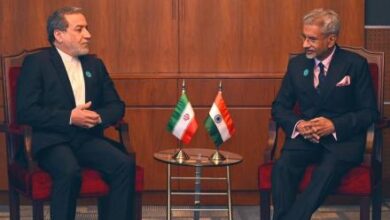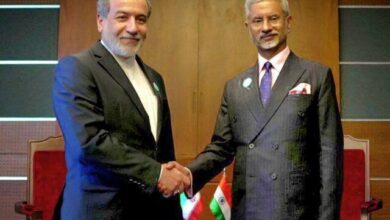Azerbaijan: Aliyev rooting for Trump win

Azerbaijan pushed hard for a Georgian Dream victory in neighboring Georgia’s parliamentary elections. Now, Baku is openly rooting for a Donald Trump win in the November 5 presidential vote in the United States.
President Ilham Aliyev has for months expressed a preference for Trump to regain the White House. At a news conference in July, Aliyev portrayed Trump as a keeper of the peace, an odd allusion implying that the United States under President Biden somehow started the Ukraine-Russia war, and not Vladimir Putin. Aliyev also lauded Trump, a convicted felon and noted harasser of women, as a defender of traditional values. Trump, according to Aliyev, has a “clear position on the issue of traditional values. I think that an absolute majority of the Azerbaijani people not only share this position, but actively promote it and put it into practice.”
On a practical level, Aliyev also noted that during his two decades at the top of Azerbaijan’s power structure, relations with Republican administrations have “always been much more productive, fruitful, and result-oriented.”
“During President Trump’s presidency, we enjoyed very fruitful cooperation based on mutual respect and appreciation of each other’s support on different tracks,” he added.
Bilateral relations took a downturn in late 2023, when the US Senate adopted a bill that would suspend all military aid to Azerbaijan by repealing the Freedom Support Act Section 907 waiver authority for the Administration with respect to assistance to Azerbaijan for fiscal years 2024 or 2025. Section 907 was adopted in 1992 amid the first Nagorno-Karabakh war, and bans any kind of direct US aid to the Azerbaijani government. In 2001, in the aftermath of the 9/11 terrorism tragedy, the Senate amended Section 907 to allow presidents to provide military assistance to Azerbaijan for counterterrorism operations.
The revival of Section 907 occurred after Azerbaijan’s reconquest of Armenian-populated Nagorno-Karabakh in September 2023 and the mass Armenian exodus that followed. Since then, Aliyev government’s relations with the Biden Administration have deteriorated, exacerbated by Azerbaijan’s crackdown on civil society and independent media.
“When they need you, you are the good guy, and they come and say good things. But when they don’t need you, they not only ignore you, but they also impose sanctions on you. For what? For restoring our sovereignty and territorial integrity,” Aliyev said in July.
Aliyev’s stance has not changed in recent days, even though Trump, hoping to win battleground states, especially Michigan, has made attempts to solicit Armenian-American votes by citing the Karabakh Armenian exodus of 2023.
“Kamala Harris did NOTHING as 120,000 Armenian Christians were horrifically persecuted and forcibly displaced in Artsakh,” he wrote on his Truth Social platform, using the Armenian name of Karabakh. “Christians around the World will not be safe if Kamala Harris is President of the United States. When I am President, I will protect persecuted Christians, I will work to stop the violence and ethnic cleansing, and we will restore PEACE between Armenia and Azerbaijan.”
The second Armenian-Azerbaijan war over Karabakh began in 2020 when Trump was president. His administration did little at the time to foster a ceasefire.
On November 1, Trump called Aram I, Catholicos of the Great House of Cilicia, expressing “full support for the issue of Artsakh [Karabakh] and the establishment of lasting peace in the region and praised the Armenian-American community as strong, smart and dynamic.”
Pro-government media in Azerbaijan downplayed Trump’s comments as routine campaign moves. “This is considered as a step taken to attract Armenian voters and it is expected that it may affect the future election results,” a commentary published by Musavat.com stated. “It should be noted that this is not the first time that Trump has taken such an initiative, and such contacts take place in order to gain wide support, especially among the Armenian diaspora in the United States.”
Source:Eurasianet



